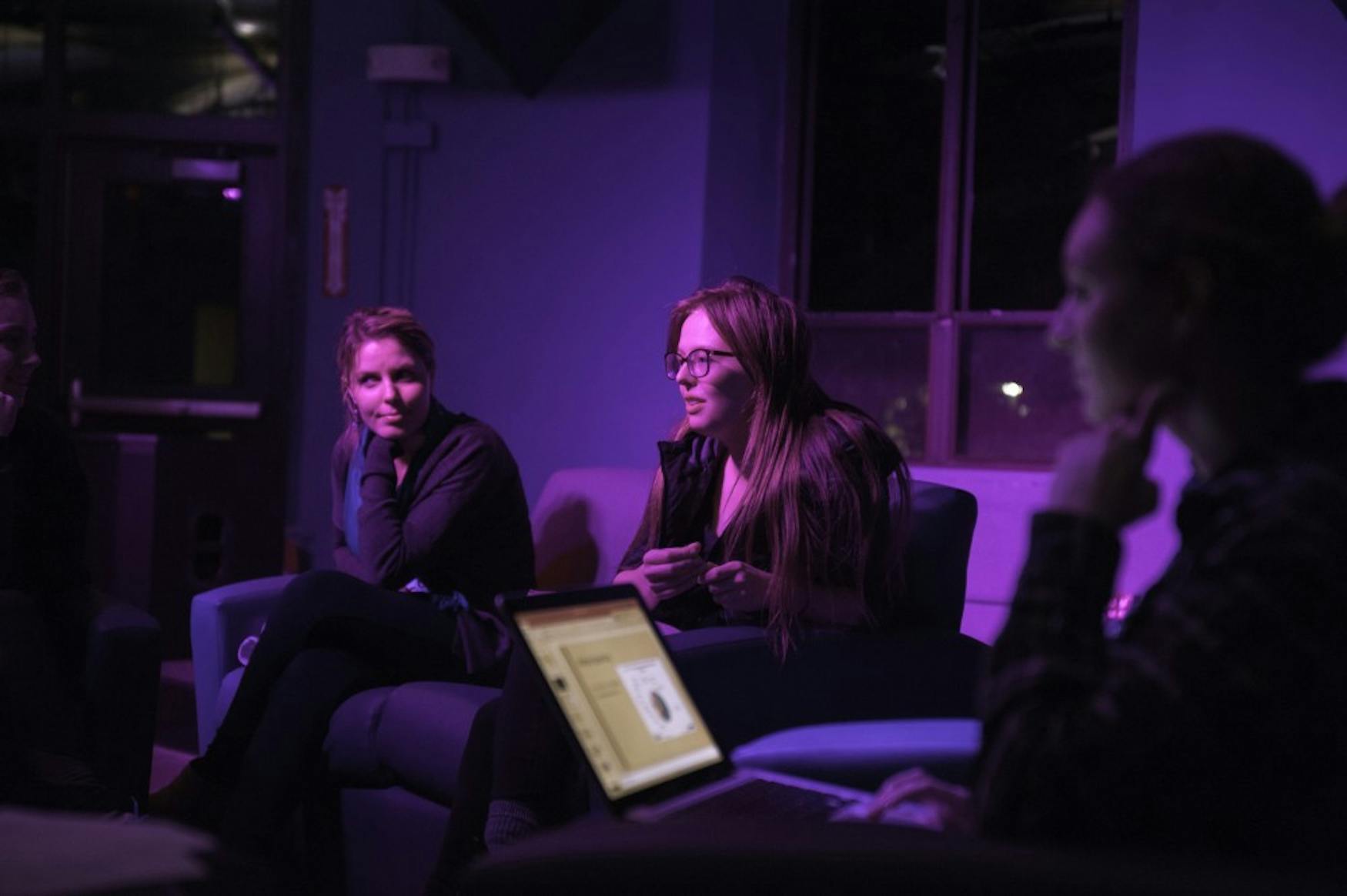Brandeis Peace Action launches student grassroots advocacy agenda
Reacting to a war-stricken world, Brandeis Peace Action began a campaign on Nov. 7 to bring together passionate students to join the cause of advocating for peace around the globe.
At the launch event, club President Maggie Ziegel ’18, as well as co-Vice Presidents Sarah Skrovan ’18 and Maria Alegria ’19, presented their club’s values and mission, and Massachusetts Peace Action’s Caitlin Forbes spoke about the state-wide organization with which the Brandeis club is affiliated.
Peace Action is “the nation’s largest grassroots peace movement in the country,” according to Forbes, MAPA’s director of Student Outreach. It began by advocating for nuclear abolition, but in the last 60 years it has expanded its focus to include peace issues across the world, according to Peace Action’s website.
Brandeis Peace Action officially became a club at Brandeis last semester. With this campaign launch, they hoped to draw in other students “who are activists at heart” to help the club establish itself and its goals for the future, Ziegel explained.
The club is planning to focus on three areas of peace activism, each explained by a different club member: reallocation of military spending to areas of domestic policy, nuclear disarmament and the Middle East.
Brandeis Peace Action advocates for decreasing military spending in favor of strengthening programs such as Social Security, Medicare, Medicaid and veterans’ benefits, Skrovan said. Peace Action opposes the federal budget proposed by President Donald Trump, stating a need to decrease military spending and close corporate tax loopholes to both promote peace and reallocate money to solving domestic problems, according to Skrovan.
On a broader scale, “People all over the world cannot feel safe without eliminating nuclear weapons,” Alegria said. She used the example of the current tension between North Korea and the United States to demonstrate the dangers of nuclear-armed nations, especially when diplomats use the power of their own nuclear arsenal to dissuade other nations from nuclear attacks.
As possible focuses for student support, Alegria pointed to three legislative proposals in Congress which would attempt to move away from this rhetoric and limit presidential discretion to use nuclear weapons.
In regard to the Middle East, Brandeis Peace Action is also focusing on supporting the Iranian nuclear deal, withdrawing all troops from Iraq and Afghanistan and aiding Syrian refugees, Ziegel explained. Looking at Saudi Arabia, the club wants to work to stop U.S. arms sales to the nation, to encourage U.S. politicians to condemn the government’s oppression of its citizens and to move the U.S. away from its partnership with the Saudi Arabian government, according to Ziegel.
Massachusetts Peace Action, a state chapter of the national organization, has recently focused on creating student organizations. As Forbes explained, in the last two years nearly a dozen such groups have been founded, including chapters at Harvard University and Tufts University. In this way, Massachusetts and New York schools are setting a new trend for the national Peace Action movement, according to Forbes.
The student chapters themselves have other state chapters to get involved with student groups, Forbes said, thanking Brandeis Peace Action for the work it has done to demonstrate the importance of student groups.
Partnering with Massachusetts Peace Action gives Brandeis students access to resources and conferences which the state organization attends. Alegria, for instance, attended a conference about nuclear disarmament this semester. “Everything that Massachusetts Peace Action does, we’re in the loop,” Ziegel said. “It gives you a broader reach and … helps you get out of the ‘Brandeis bubble.’”
Throughout the club launch, the speakers highlighted the power members have to influence the club’s mission. Forbes emphasized the freedom that student groups have to set their own agendas, even when affiliated with the state organization. “You guys talk about whatever you’re interested about,” Forbes said, encouraging students to look at issues they care about “through a peace lens.”
Brandeis Peace Action is looking for people who are passionate, willing to take on leadership positions and who possibly have experiences and skills which can be applied to activism. “We want to build any sort of organizing we do around the strengths … and the interests of the people in the group,” Ziegel said.
Summing up the ideal member of the club, Ziegel described a person who cares deeply about promoting peace and who is “looking to be engaged with that in a really real way with other students.”



Please note All comments are eligible for publication in The Justice.